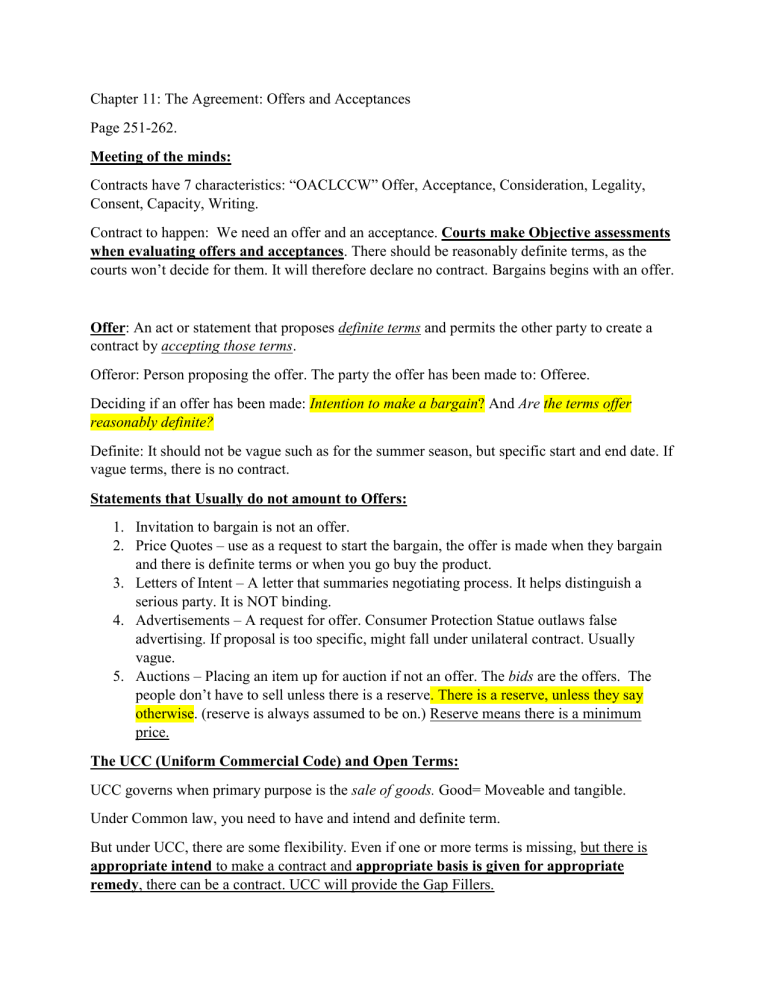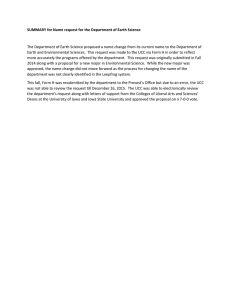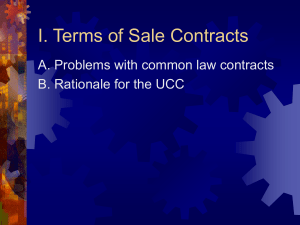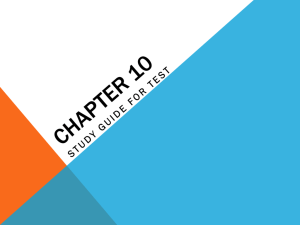
Chapter 11: The Agreement: Offers and Acceptances Page 251-262. Meeting of the minds: Contracts have 7 characteristics: “OACLCCW” Offer, Acceptance, Consideration, Legality, Consent, Capacity, Writing. Contract to happen: We need an offer and an acceptance. Courts make Objective assessments when evaluating offers and acceptances. There should be reasonably definite terms, as the courts won’t decide for them. It will therefore declare no contract. Bargains begins with an offer. Offer: An act or statement that proposes definite terms and permits the other party to create a contract by accepting those terms. Offeror: Person proposing the offer. The party the offer has been made to: Offeree. Deciding if an offer has been made: Intention to make a bargain? And Are the terms offer reasonably definite? Definite: It should not be vague such as for the summer season, but specific start and end date. If vague terms, there is no contract. Statements that Usually do not amount to Offers: 1. Invitation to bargain is not an offer. 2. Price Quotes – use as a request to start the bargain, the offer is made when they bargain and there is definite terms or when you go buy the product. 3. Letters of Intent – A letter that summaries negotiating process. It helps distinguish a serious party. It is NOT binding. 4. Advertisements – A request for offer. Consumer Protection Statue outlaws false advertising. If proposal is too specific, might fall under unilateral contract. Usually vague. 5. Auctions – Placing an item up for auction if not an offer. The bids are the offers. The people don’t have to sell unless there is a reserve. There is a reserve, unless they say otherwise. (reserve is always assumed to be on.) Reserve means there is a minimum price. The UCC (Uniform Commercial Code) and Open Terms: UCC governs when primary purpose is the sale of goods. Good= Moveable and tangible. Under Common law, you need to have and intend and definite term. But under UCC, there are some flexibility. Even if one or more terms is missing, but there is appropriate intend to make a contract and appropriate basis is given for appropriate remedy, there can be a contract. UCC will provide the Gap Fillers. Gap Filler Provisions: UCC rules for supplying missing terms. 1. Open Price: If no price settled, then go with reasonable price= market value or determined by experts. 2. Output and Requirements Provisions:- Output contract: Obligates the seller to sell all his output to the buyer (1 buyer). While the Requirement contract obligates a buyer to obtain all his needed goods from the seller (1 seller). E.g., just from one supplier. UCC here mention that there is no specific quantity mentioned, but the code required that parties should act in good faith and not demand disproportionate amount as compared to past dealings or their reasonable estimates. Termination Offer 1. Termination by Revocation – offer taken back before the offeree accepts. 2. Making contracts temporarily Irrevocable – Not able to revoke an offer for sometimes. - Option Contract- Common Law=Consideration-The offeror may not revoke an offer during the option period. The purchaser buys the right to have the offer held open. E.g., by giving a deposit. - Firm Offers (UCC contracts only) No consideration- : If a promise was made in writing and signed by the merchant, and if it agrees to hold the offer for a stated period, then it cannot be revoked, even if nothing has been paid to the merchant. 3. Termination by Rejection – If an offeree rejects and offer, the rejection immediately terminates the offer. - Counteroffer: A party makes a counteroffer if it responds to an offer with a new and different proposal. A counteroffer is a rejection. 4. Termination by Expiration – When an offer specifies a time limit for acceptance, that period is binding. If the offer specifies not time limit, the offeree has a reasonable period in which to accept. 5. Termination by Operation of Law: If an offeror dies or becomes mentally incapacitated, the offer terminates automatically ad immediately. Destruction of the subject matter terminates the office. (The 7 characteristics of a Contract)




